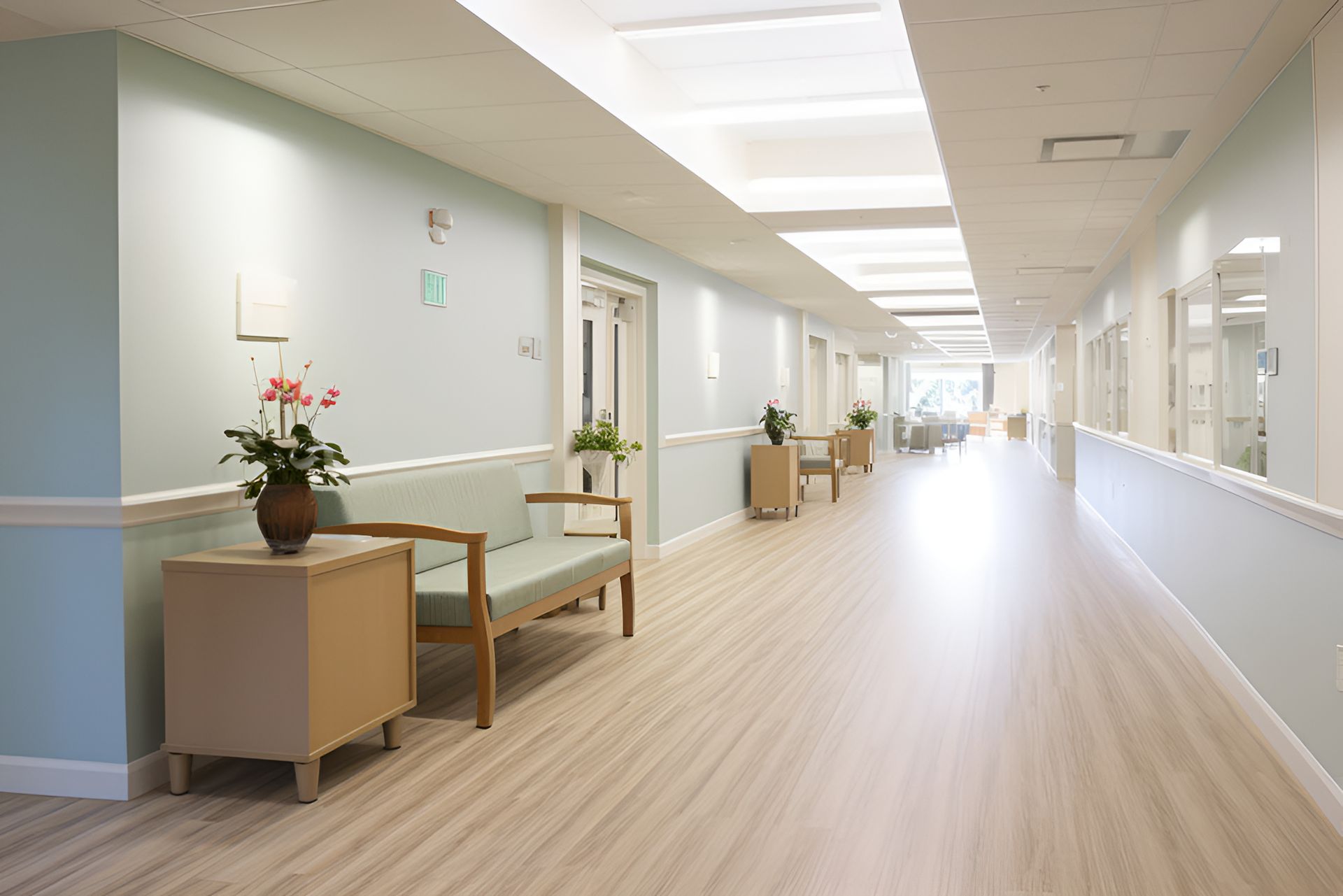When Assisted Living Is Not Enough | Assisted Living Colorado Springs

When assisted living isn’t sufficient, it’s essential to recognize the signs, like difficulty with daily activities or behavioral changes. Skilled nursing facilities offer round-the-clock medical supervision and tailored care plans. Alternatively, in-home medical services provide personalized care and better mental health outcomes. Memory care facilities offer specialized environments and activities for cognitive decline. Financial planning is essential; consider programs like Medicaid and consult advisors to manage costs. Understanding these options will help you make an informed decision about the next steps in your loved one’s care journey. There’s more to explore about each of these aspects.
Key Takeaways
- Daily activities like bathing, dressing, or eating become challenging without constant assistance.
- Chronic illnesses worsen, leading to frequent falls or other medical emergencies requiring round-the-clock medical supervision.
- Significant behavioral changes occur, such as increased confusion, agitation, or social withdrawal.
- Specialized medical services like wound care or physical rehabilitation are necessary and unavailable
- in assisted living.
- Memory care becomes essential due to cognitive decline, necessitating a structured environment with trained staff.
Recognizing Increased Care Needs
Recognizing increased care needs is crucial when your loved one’s safety and well-being are at risk despite the support of assisted living. You might notice that daily activities like bathing, dressing, or eating become increasingly challenging for them. These signs indicate that the current level of care may no longer be sufficient. Analyzing changes in their health conditions, such as frequent falls or worsening chronic illnesses, can provide further evidence.
Additionally, behavioral changes like confusion, agitation, or withdrawal suggest cognitive decline that assisted living staff mightn’t be equipped to manage. Monitoring these symptoms closely is vital, as they can signify the need for more specialized care.
Consider the feedback from healthcare providers who interact with your loved one regularly. Their professional insights can objectively assess your loved one’s evolving needs.
Empathize with your loved one’s situation, understanding that admitting the need for more intensive care can be a challenging but necessary decision. By staying vigilant and informed, you ensure your loved one receives the appropriate care to maintain their quality of life and dignity.
Exploring Skilled Nursing Care
When your loved one’s needs surpass what assisted living can provide, it’s time to explore the benefits of skilled nursing care. Skilled nursing facilities offer round-the-clock medical supervision, ensuring that complex health issues are managed effectively. These facilities are staffed with licensed nurses and healthcare professionals trained to handle various medical conditions.
You’ll find that skilled nursing care provides specialized services such as wound care, intravenous therapy, and physical rehabilitation. These are interventions that assisted living facilities usually can’t offer.
It’s not just about medical attention; skilled nursing facilities also provide thorough care plans tailored to individual needs, which can significantly improve the quality of life for your loved one.
Skilled nursing facilities adhere to stringent regulatory standards, which can give you peace of mind about the level of care provided. You can expect regular assessments and updates on your loved one’s condition, allowing for timely medical interventions.
While it can be challenging to shift to skilled nursing care, enhanced medical support and continuous monitoring can make a meaningful difference in your loved one’s overall well-being. Analyzing your options thoughtfully ensures you make the best choice for their health and safety.
Benefits of In-Home Medical Services
In-home medical services offer a personalized approach to healthcare that allows your loved one to receive professional care within the comfort and familiarity of their home. This method reduces the stress and anxiety often associated with hospital visits, fostering a more positive and conducive healing environment. Research shows that patients receiving in-home care usually experience better mental health outcomes due to the comfort and emotional support provided in a familiar setting.
In-home medical services are tailored to meet individual needs, ensuring that your loved one receives specific treatments and attention that address their unique health concerns. This customization can lead to more effective care and quicker recovery times. Studies have demonstrated that in-home care can decrease hospital readmission rates and improve patient satisfaction.
From an analytical perspective, in-home medical services can also be cost-effective. This approach can lead to significant savings by reducing the need for hospital stays and minimizing emergency room visits. Additionally, the convenience of receiving medical care at home eliminates transportation barriers, ensuring consistent and timely treatment.
Empathetically, in-home medical services provide a sense of dignity and independence, allowing your loved one to maintain their daily routines and personal preferences while receiving essential healthcare.
Transitioning to Memory Care
| ASPECT | INDEPENDENT LIVING | ASSISTED LIVING |
|---|---|---|
| Level of care provided | Focuses on social needs and independence; limited medical and supportive care services. | Provides assistance with activities of daily living (ADLs) and access to medical and supportive care services. |
| Cost structure | Requires an entrance fee and monthly fee for maintenance and amenities. | Rental-based with monthly fees covering services and personal care assistance. |
| Community design | Large campuses with multiple buildings spread out, offering more space and distance between residences. | Smaller footprint with most resident needs provided within the building, including memory care programs for individuals with cognitive impairments. |
| Family involvement | Primarily resident-driven decisions with encouragement for family involvement in the community. | Active family involvement, especially for residents with dementia, including participation in care planning processes. |
| Amenities and programming | Flexibility in dining options and programming. | All-inclusive meals and tailored programming, particularly in memory care programs. |
Shifting to memory care can be a challenging but necessary step when your loved one’s cognitive needs surpass what in-home services can provide. Cognitive decline, such as Alzheimer’s or dementia, often requires specialized care that goes beyond the scope of typical assisted living facilities. Memory care units are designed to offer a structured environment with trained staff who understand the complexities of cognitive impairments.
To ease this shift, it’s essential to involve your loved one in decision-making as much as possible. This helps maintain their sense of autonomy and reduces feelings of anxiety or resistance. Visit potential memory care facilities together and ask detailed questions about staff training, safety protocols, and daily routines.
Research shows that individuals in memory care often experience improved quality of life due to tailored activities and social interactions. These programs stimulate cognitive function and provide a sense of community. Look for facilities offering personalized care plans that can adapt as your loved one’s condition evolves.
Lastly, maintain open communication with the staff to ensure your loved one’s needs are met and to stay informed about their progress. This collaborative approach can make the shift smoother for everyone involved.
Financial Considerations and Planning
Managing the financial aspects of moving to memory care can be overwhelming, but carefully planning and understanding your options will help guarantee your loved one receives the best care. Start by evaluating your loved one’s financial resources, including savings, investments, and long-term care insurance policies.
Many families overlook benefits that may be available through programs like Medicaid or Veterans Affairs, which can significantly ease the financial burden.
Next, research the costs associated with memory care facilities in your area. These can vary widely based on location, level of care, and amenities offered. Make a detailed comparison to understand what’s included in the monthly fees and what additional costs might arise. This will help you avoid unexpected expenses.
Consider consulting a financial advisor specializing in elder care. They can offer tailored advice on structuring finances to maximize available resources. Don’t forget to account for future increases in care costs and inflation.
Many facilities offer financial planning services to help families navigate these complexities.
Frequently Asked Questions
How Can Family Members Provide Emotional Support During This Transition?
You can provide emotional support by actively listening to their concerns and fears. Acknowledge their feelings and reassure them that they’re not alone.
Arrange regular visits and calls to maintain a solid emotional connection. Encourage participation in social activities and hobbies to foster a sense of community.
Research shows that maintaining strong family bonds and social networks dramatically enhances emotional well-being during such changes.
Are There Alternative Therapies That Can Complement Traditional Care?
There are alternative therapies that can complement traditional care.
You might consider options like music therapy, which can improve mood and cognitive function.
Art therapy provides a creative outlet and reduces stress.
Pet therapy can offer companionship and alleviate loneliness.
Each of these therapies has been shown to enhance well-being and can be tailored to individual needs, providing a holistic approach to care.
What Are Some Common Misconceptions About Advanced Care Facilities?
You might think advanced care facilities are cold, impersonal places, but that’s a misconception. These facilities often provide personalized care plans and foster community engagement.
It’s also a myth that residents lose all independence; many facilities encourage autonomy wherever possible.
Another common belief is that quality of life declines, but evidence shows that residents can thrive physically, emotionally, and socially with proper care.
How Do Cultural Differences Impact Senior Care Options?
Cultural differences significantly impact senior care options by influencing expectations and preferences. Some cultures prioritize family-based care, while others lean on institutional settings. Understanding these variations is essential to providing respectful and effective care.
Evidence shows that culturally sensitive care improves seniors’ well-being. By analyzing cultural norms, you can tailor care plans that resonate with seniors’ values and traditions, ensuring they feel understood and respected.
Can Pets Be Accommodated in More Intensive Care Settings?
Yes, pets can often be accommodated in more intensive care settings, though policies vary. Studies show that pets can significantly improve seniors’ mental and emotional well-being.
You should check with specific facilities about their pet policies. Many places recognize the therapeutic benefits of animals and will make arrangements to support this.
Ensuring the pet’s needs are met in these environments is essential.
Conclusion
When assisted living isn’t sufficient, it’s vital to recognize the need for increased care. By exploring skilled nursing care, considering in-home medical services, and moving to memory care when necessary, you can guarantee your loved one receives the support they need.
Financial planning can’t be overlooked—it’s essential for managing these changes smoothly. Remember, making informed, empathetic decisions will significantly improve your loved one’s quality of life and well-being.










